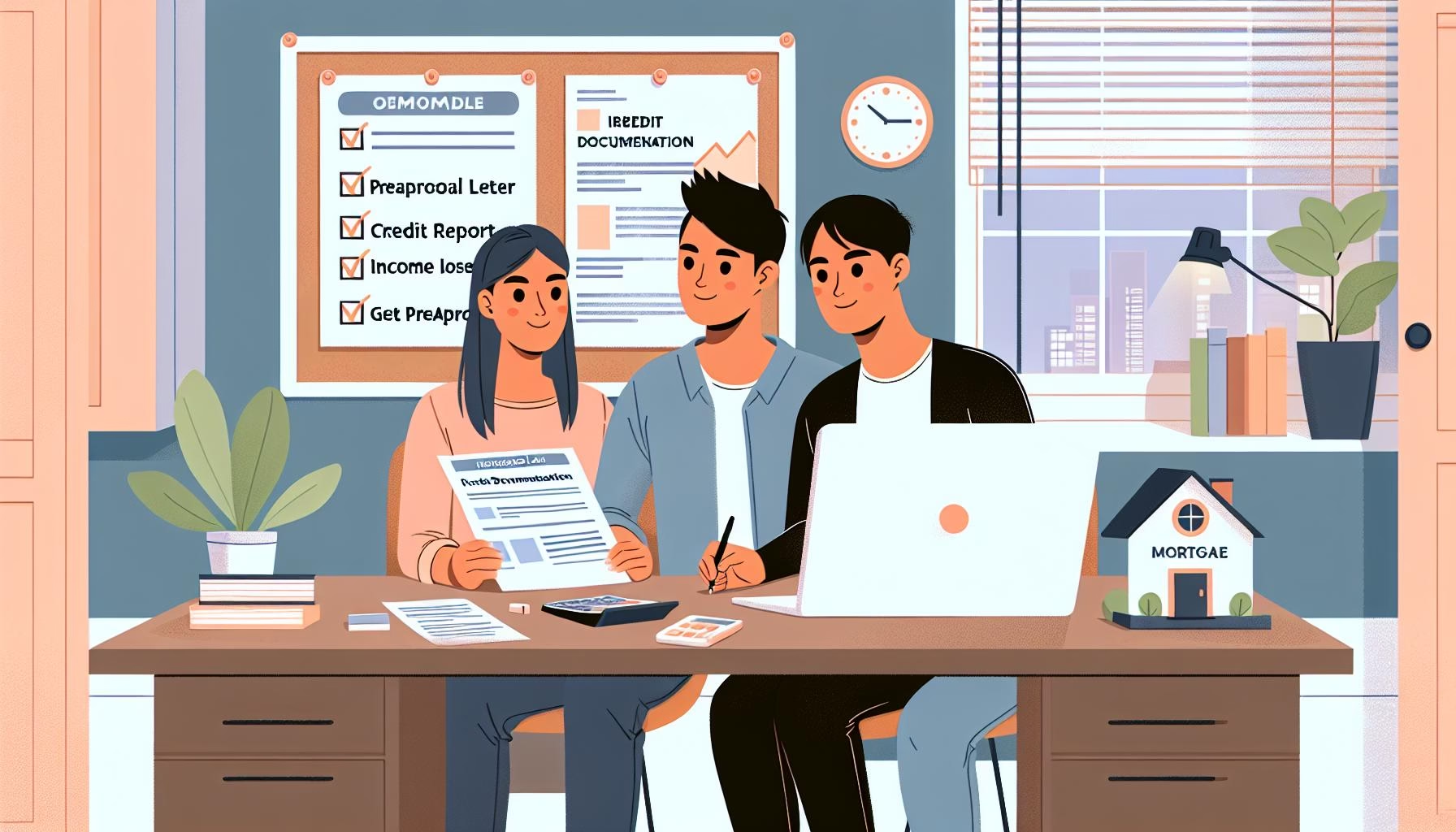Mortgage loan application—those three words can feel just a little intimidating. But the truth is, getting a mortgage doesn’t have to be overwhelming. With the right steps and some insider tips, you can pave a smooth path toward homeownership.
In this blog post, we’ll walk you through seven expert-backed tips to help you confidently apply for a mortgage loan. Whether you’re a first-time buyer or just need a refresher, this guide simplifies the process so you can take one of life’s biggest financial steps with ease.
1. Understand Your Budget Before You Shop
Before falling in love with a dream house, it’s smart to figure out how much house you can actually afford. Lenders look at your income, debts, credit, and several other factors to determine your eligibility. But why wait for them? Do the math beforehand.
- Create a list of your monthly income and fixed expenses.
- Use an online mortgage calculator to get a rough idea of possible mortgage payments.
- Factor in taxes, insurance, and maintenance costs—not just the mortgage payment.
As a rule of thumb, many experts suggest your mortgage should be no more than 28% of your gross monthly income.
2. Check and Improve Your Credit Score
Your credit score plays a huge role in determining what mortgage options are available to you. It also helps decide your interest rate. A higher score = a better rate = more savings over time.
How can you improve your score?
- Pay bills on time.
- Lower your credit card balances.
- Avoid applying for new credit cards or loans right before applying for a mortgage.
Try to get a copy of your credit report from all three major bureaus: Experian, Equifax, and TransUnion. You’re entitled to one free copy of each per year from AnnualCreditReport.com.
3. Get Preapproved, Not Just Prequalified
There’s a big difference between being prequalified and being preapproved. Prequalification is a quick estimate based on numbers you provide. But preapproval? That’s the real deal.
When you’re preapproved for a mortgage:
- The lender verifies your financial details, such as income, debt, and credit score.
- You receive a written commitment, subject to conditions like a home appraisal.
- Sellers take your offer more seriously.
This step can give you a serious edge in competitive housing markets. It also helps you stay within budget during your home search.
4. Gather Your Documents Early
Ever cleaned out a junk drawer looking for that one document? Avoid the last-minute scramble by collecting everything your lender will ask for—before you even apply.
Here’s a basic checklist:
- Proof of income (like pay stubs and tax returns)
- Bank statements for the past 2-3 months
- Employer contact information
- Identification (ID, Social Security number)
- List of current debts and financial obligations
Having your paperwork in order makes the whole process more efficient and shows lenders you’re serious and prepared.
5. Choose the Right Lender for You
Not all lenders are created equal. Even though interest rates are often a top concern, don’t let that be the only factor in your decision. Think of it like shopping for a car—you want one that’s reliable, has great support, and is right for your life.
When choosing a mortgage lender:
- Compare interest rates and loan products.
- Check reviews and ask for recommendations.
- Pay attention to how the lender communicates—do they answer your questions clearly and patiently?
Take the time to explore options. You can also check out our guide to top-rated mortgage lenders that are known for excellent customer service and low-rate offers.
6. Don’t Make Big Financial Changes
Got your eye on new furniture for that dream home? Hold off just a bit. Once you’ve applied for a mortgage, making major changes to your credit or finances can raise red flags with lenders.
Here are a few things to avoid:
- Opening new loans or credit cards
- Switching jobs or becoming self-employed
- Making large withdrawals or deposits
Lenders like stability. Any sudden changes—even with good intentions—can delay or derail your loan approval.
7. Ask Questions Every Step of the Way
This might be the most important tip of all. Don’t be afraid to speak up. The mortgage process can be tricky, especially with unfamiliar terms. If something doesn’t make sense, ask for an explanation.
Here are a few good questions to ask your lender:
- What fees will I be responsible for at closing?
- Is this rate fixed or adjustable?
- Can I lock in the interest rate? If yes, for how long?
Remember: There’s no such thing as a silly question when you’re making one of the biggest financial commitments of your life.
Final Thoughts: Patience Pays Off
The mortgage loan process may feel like a marathon, but a little preparation can go a long way. By checking your credit, gathering documents, getting preapproved, and asking lots of questions, you’ll be one big step closer to grabbing those new keys.
With these expert tips as your roadmap, you’ll navigate the home loan journey with less stress and more confidence. For more financial guidance like this, take a look at our home loan resources to help you make educated decisions.
For the full original article this blog was inspired by, visit Investopedia’s guide to applying for a mortgage loan.
Happy house hunting!

